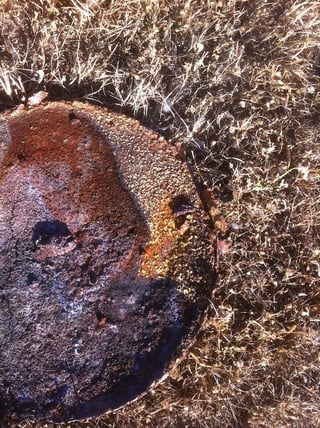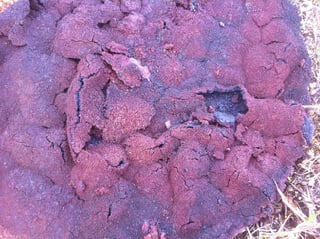Got some free sulfur. Went to the site, and they put a pallet with 3 barrels on it. One of the barrels was badly corroded, but looked like I could get it home. I had plastic barrels at home that I could transfer the material to.
About 10 km from home I noticed I was leaving a trail of smoke. Got in back with a shovel, and found that I had spots of burning sulfur. I smothered as best I could, got home, and spent the next two hours unloading and putting out blobs of burning sulfur. Did a number on my truck box lining in a few spots.
The lids continued to smoke -- it was a very slow motion fire, with some form of corrosion that would burn across the surface at around an inch an hour.
The smoke smelled strong of sulfur dioxide.
The bulk of the sulfur was unchanged by all this, and I was able to get it into plastic pails and barrels with no problem.
all the barrels had been stored outside, and in the non-corroded barrel had standing water on top of the sulfur.
What happened in storage? Since sulfur always seems to have an SO2 odour, I assume that either some bacteria makes a living processing S to SO2, or there is a very slow reaction at normal temperatures.
What corrosion product would be flammable?
Why would it start to burn when transported, instead of in the former owner's parking lot?
Sulfur combustion on barrel:

A different lid:

